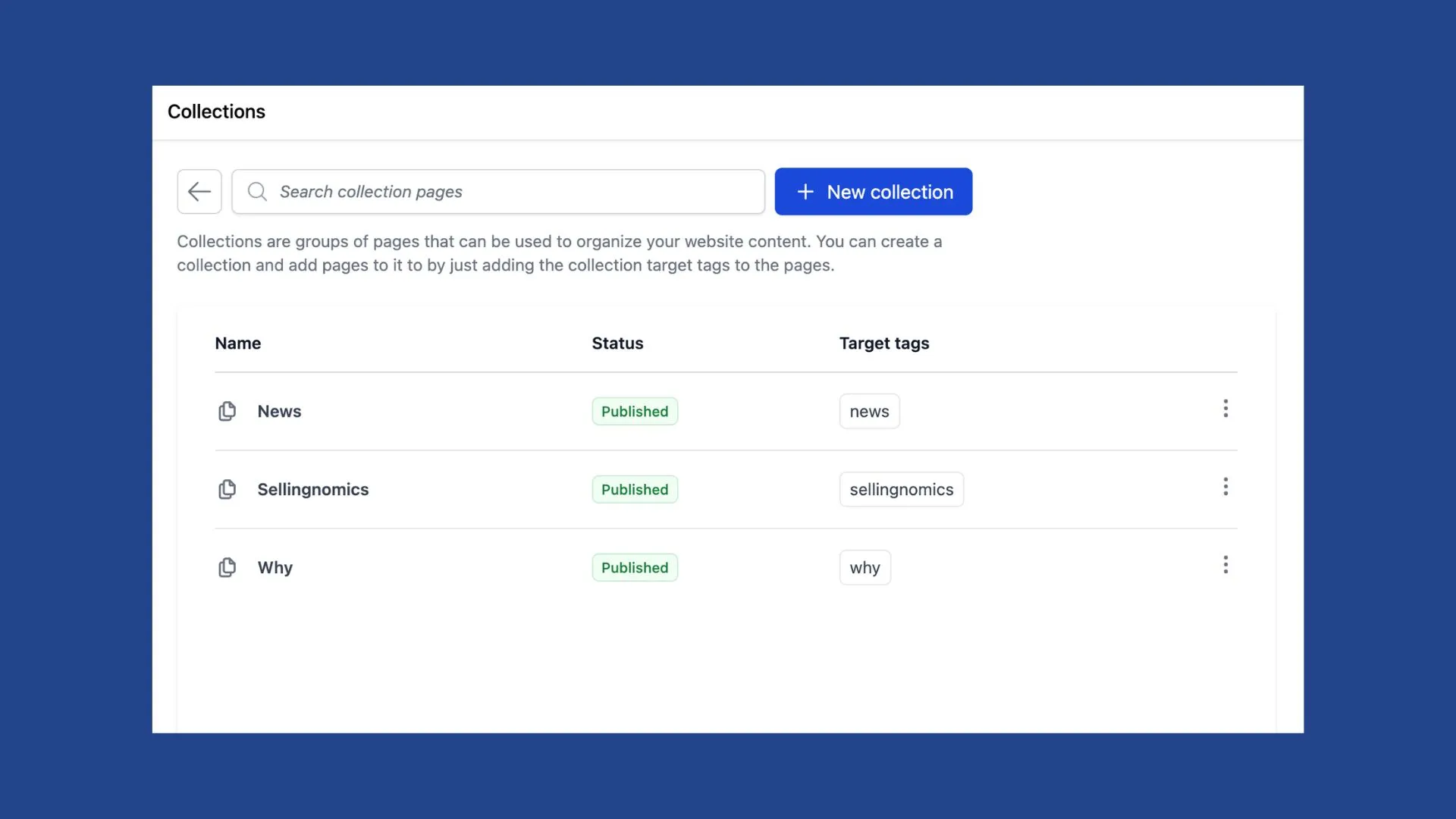December 18, 2024
Collection Pages
Konigle's collection pages feature automatically groups similar website pages and improves SEO.
It is a common obsession in the SEO world to chase external backlinks. But what if the most powerful, controllable links are already within your grasp? As Eli Schwartz, author of Product-Led SEO, puts it:
Many in the SEO industry are obsessed with links but may focus on the wrong ones. Rather than backlinks, the most important links are internal links, which are much easier to get and control. - - Eli Schwartz
A densely internally linked website consistently ranks better in search engines than one with weak connections. By strategically linking your pages together, you don't just help search engine crawlers - you also guide your visitors, providing a richer, more cohesive user experience.
One of the most effective ways to build these powerful internal links is by creating collection pages. These pages act as hubs, connecting and linking related content under a single, organized view. Think of them as a curated directory for your website, making it simple for visitors and search engines alike to discover all your relevant content on a specific topic.
For example, just like this post, on the Konigle blog we write about the various features that we release, explaining why we built them and how they can be used. We then group all these posts in a single page on why to use Konigle. This is enabled by the Collections feature in Konigle.
Use cases for collection pages are endless and impactful for any SME:
- Group blogs by topic (e.g., all your posts on marketing tips or customer stories).
- Create product collection pages for your e-commerce store (e.g., all products in the "kitchenware" category).
- Showcase free tools or resources available on your website.
Linking pages with overlapping topics can help both crawlers and visitors better discover contextual links between pages. This can not only help improve a website's search engine visibility and improve indexing when the website's crawl budget is best used, but also provide a better user experience when visitors are able to conveniently explore information in a clear and concise collection page.
Manually creating and managing these collection pages, along with their internal links, can be a daunting and time-consuming task for a busy SME owner like yourself. This is where Tim, aka Konigle AI, becomes your essential digital employee, automating this crucial SEO work for you.
Konigle’s "Collections" feature empowers you to organize and categorize your pages based on shared characteristics like topics or niches. With Tim, the process is incredibly simple:
- Collection Page Generation: Tim is able to generate and optimize a collection page for you based on the tags used on your pages. No manual design or coding required.
- Centralized Control: Yes, all your created collections are found in a central dashboard. But the easier method of creating or deleting a collection page will of course be to just send an email to Tim.
- Built-in SEO Optimization: The meta tags and JSON-LD schema markup for every created collection page are automatically optimized and easily accessible within the feature. This ensures that the page itself is ready to rank and helps search engines understand its purpose from the start.

